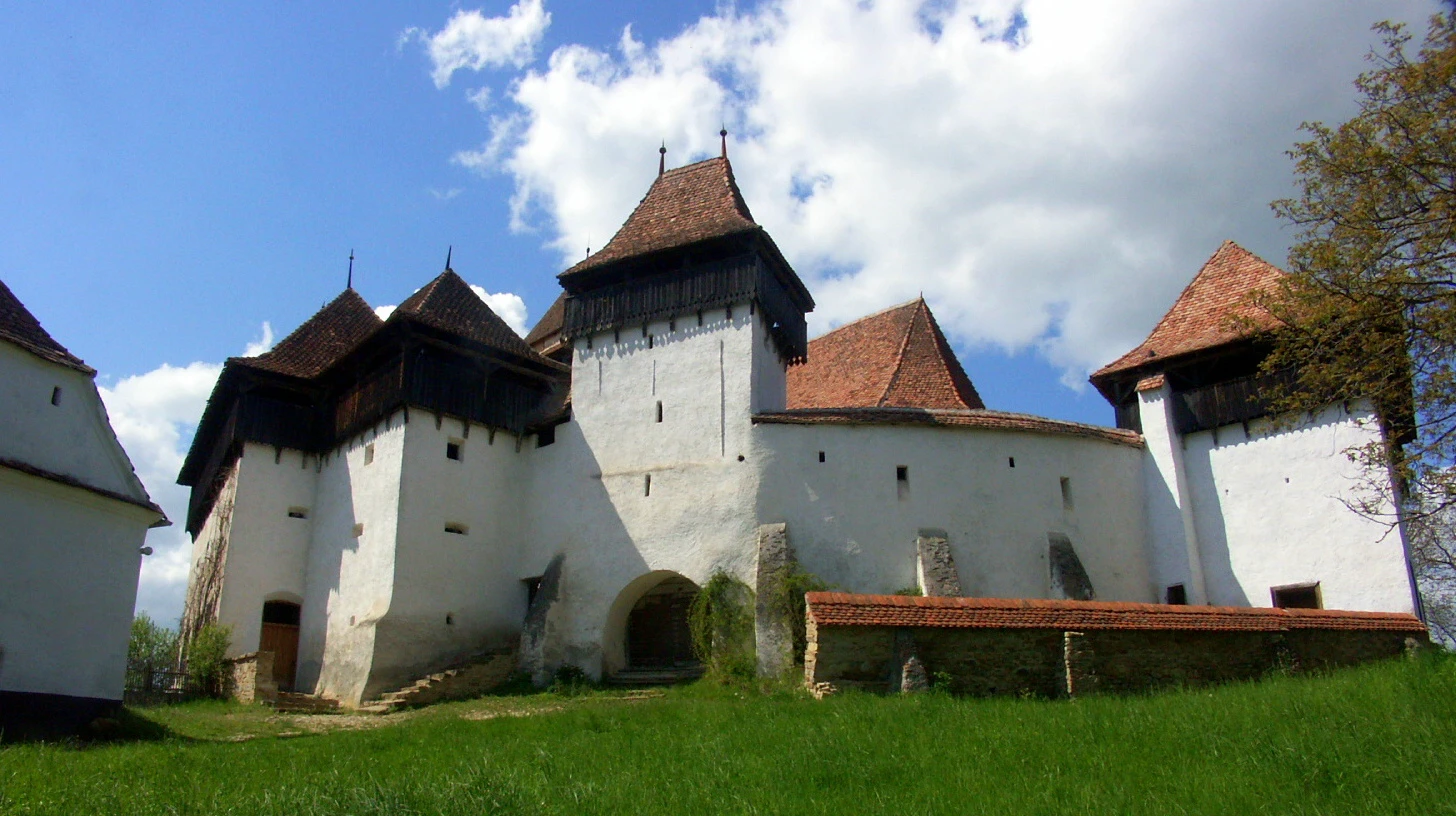Gå offline med appen Player FM !
Prussian Socialism Episode 22: The German Settlement of Transylvania
Fetch error
Hmmm there seems to be a problem fetching this series right now.
Last successful fetch was on November 25, 2024 21:13 (
What now? This series will be checked again in the next day. If you believe it should be working, please verify the publisher's feed link below is valid and includes actual episode links. You can contact support to request the feed be immediately fetched.
Manage episode 348507421 series 3358918

You have heard of America’s Wild West… but what about Europe’s Wild East?
In the 1100s, several hundred Western Europeans came to Transylvania at the invitation of the Hungarian king, Geza II. Their mission: to secure the Carpathian Mountains against the attacks of the horse-archer peoples of the Eurasian Steppe.
Over the next four centuries, they built castles, churches and cities, holding the south-easternmost outpost of Western Christendom. Briefly vassals of the Turks, they returned to the Hapsburg fold after the 1683 siege of Vienna and played a crucial role in the politics of Austro-Hungary and later Romania.
The settlers—known as the Transylvanian Saxons—were reinforced by later inflows of colonists from northern Germany and the Low Countries. By the 1930s, they numbered 300,000.
The Transylvanian Saxons are just one piece of a larger, millennium-long tale of settlement, trade, and conquest—the Drang nach Osten, the “Push to the East”. Starting in the 1100s, Germanic peoples pushed eastward into the Baltic, the Balkans and even farther afield. They brought cities and agriculture to the sparsely populated and disorganized East. Their movements surged and ebbed throughout the centuries, but by the 1700s, Germanic settlements reached as far as the Volga.
Unlike the later sea-borne expansions of the Spanish, Portuguese and others, it is almost unknown in the English-speaking countries.
Join Greg Conte and Fash the Nation’s Jazzhands McFeels for a discussion of this little-known but highly consequential history. Jazzhands brings not only knowledge, but also relates his own experiences in Saxon Siebenbürgen—the land of the seven cities.
Books mentioned:
Migrating Memories Romanian Germans in Modern Europe by James Koranyi.
Die deutsche Ostsiedlung im Mittelalter by Charles Higounet.
(No English version available. Originally published in French as Les Allemands en Europe centrale et orientale au Moyen Age)
End-song: Oostlandlied, text by Jaap van Kersbergen. This song—a favorite of the Dutch SS—was based off of the “Lied der Ostlandfahrer” a medieval folk-song about migrating eastward.
See der Spiegel "Nach Ostland wollen wir reiten": https://archive.ph/T84sP#selection-5043.4-5043.26
And here: https://nl.wikipedia.org/wiki/Oostlandlied
Image: Kirchenburg Deutsch-Weisskirch
39 episoder
Fetch error
Hmmm there seems to be a problem fetching this series right now.
Last successful fetch was on November 25, 2024 21:13 (
What now? This series will be checked again in the next day. If you believe it should be working, please verify the publisher's feed link below is valid and includes actual episode links. You can contact support to request the feed be immediately fetched.
Manage episode 348507421 series 3358918

You have heard of America’s Wild West… but what about Europe’s Wild East?
In the 1100s, several hundred Western Europeans came to Transylvania at the invitation of the Hungarian king, Geza II. Their mission: to secure the Carpathian Mountains against the attacks of the horse-archer peoples of the Eurasian Steppe.
Over the next four centuries, they built castles, churches and cities, holding the south-easternmost outpost of Western Christendom. Briefly vassals of the Turks, they returned to the Hapsburg fold after the 1683 siege of Vienna and played a crucial role in the politics of Austro-Hungary and later Romania.
The settlers—known as the Transylvanian Saxons—were reinforced by later inflows of colonists from northern Germany and the Low Countries. By the 1930s, they numbered 300,000.
The Transylvanian Saxons are just one piece of a larger, millennium-long tale of settlement, trade, and conquest—the Drang nach Osten, the “Push to the East”. Starting in the 1100s, Germanic peoples pushed eastward into the Baltic, the Balkans and even farther afield. They brought cities and agriculture to the sparsely populated and disorganized East. Their movements surged and ebbed throughout the centuries, but by the 1700s, Germanic settlements reached as far as the Volga.
Unlike the later sea-borne expansions of the Spanish, Portuguese and others, it is almost unknown in the English-speaking countries.
Join Greg Conte and Fash the Nation’s Jazzhands McFeels for a discussion of this little-known but highly consequential history. Jazzhands brings not only knowledge, but also relates his own experiences in Saxon Siebenbürgen—the land of the seven cities.
Books mentioned:
Migrating Memories Romanian Germans in Modern Europe by James Koranyi.
Die deutsche Ostsiedlung im Mittelalter by Charles Higounet.
(No English version available. Originally published in French as Les Allemands en Europe centrale et orientale au Moyen Age)
End-song: Oostlandlied, text by Jaap van Kersbergen. This song—a favorite of the Dutch SS—was based off of the “Lied der Ostlandfahrer” a medieval folk-song about migrating eastward.
See der Spiegel "Nach Ostland wollen wir reiten": https://archive.ph/T84sP#selection-5043.4-5043.26
And here: https://nl.wikipedia.org/wiki/Oostlandlied
Image: Kirchenburg Deutsch-Weisskirch
39 episoder
همه قسمت ها
×Velkommen til Player FM!
Player FM is scanning the web for high-quality podcasts for you to enjoy right now. It's the best podcast app and works on Android, iPhone, and the web. Signup to sync subscriptions across devices.




